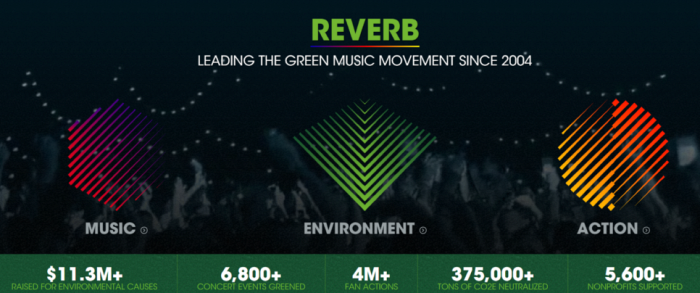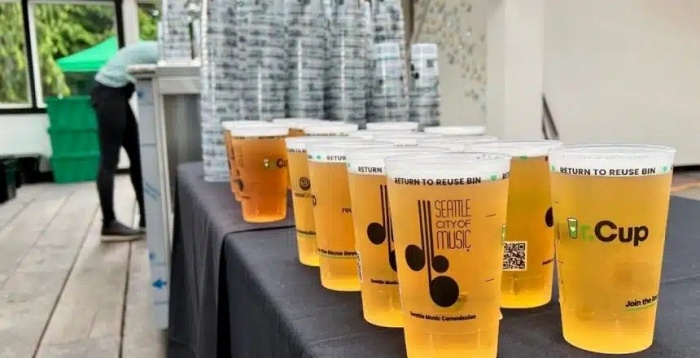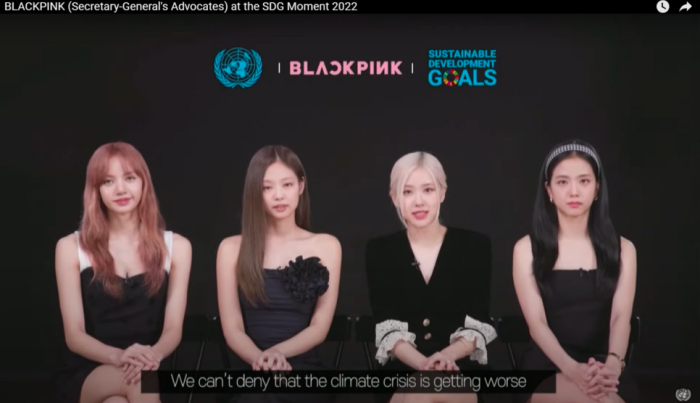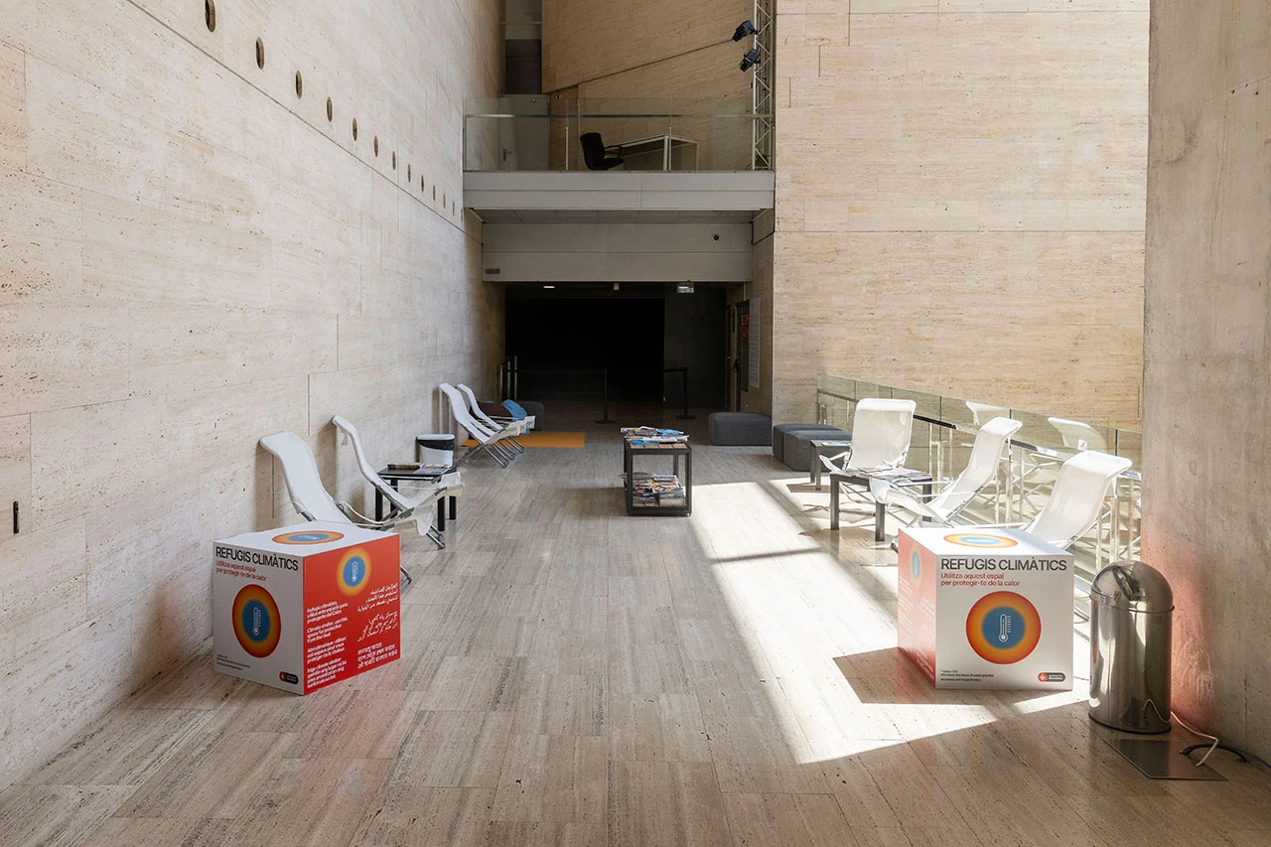- The Global Rise of World Tours — and the Accompanying Surge in Carbon Emissions

As of 2023, K-pop has established itself as a global cultural phenomenon with hundreds of millions of fans around the world. K-pop concerts are being held across the globe — in the United States, Europe, South America, Africa, and beyond — and albums by K-pop artists frequently top international music charts. Led by BTS, who debuted in 2012, a wide range of K-pop groups such as BLACKPINK, TWICE, SEVENTEEN, and aespa have achieved global success, making K-pop a major trend in the international music industry.
In 2023, as the COVID-19 pandemic eased, concert activities around the world became more active. In particular, the number of world tour concerts by K-pop artists reportedly increased significantly. BTS, BLACKPINK, and TWICE each held approximately 150, 120, and 60 performances respectively, setting new records for the number of world tour shows by K-pop artists. Based on reports from major domestic and international media, the total number of world tour concerts held in 2023 is estimated to be around 600, with these three groups alone accounting for more than half of that total. Additionally, this represents about a 50% increase compared to the approximately 400 concerts held in 2022. With the rise in the number of concerts, carbon emissions are also expected to continue increasing accordingly.
According to a study released by Anschutz Entertainment Presents (AEG Presents), a concert outsourcing company affiliated with Anschutz Entertainment Group (AEG), an analysis of approximately 600 concerts held in the UK found that each concert emitted an average of about 100 tons of carbon dioxide. The study revealed that the largest portion of carbon emissions—about 70%—came from transportation related to the event, including travel by artists, staff, and attendees. In particular, artists on international tours tend to generate significantly higher emissions due to the use of airplanes and ships. Additionally, carbon emissions from the use of stage lighting, sound equipment, and heating and cooling systems accounted for roughly 25%, while emissions related to waste generation made up about 5%. Most waste produced at concert venues is not recycled but rather incinerated or landfilled.
Background of Coldplay’s Push for an Eco-Friendly World Tour
On November 14, 2019, Coldplay announced in an interview with the BBC that they would be pausing their global tours for the time being. Coldplay’s lead singer, Chris Martin, expressed concerns about climate change and explained that the band was in the process of researching how to create a sustainable tour and make a positive impact. At the time, Coldplay had just released their first album in four years, Everyday Life, which attracted worldwide attention from fans. Instead of embarking on a world tour, Chris Martin announced that they would perform twice in Jordan and broadcast the concerts free of charge to a global audience via YouTube.
In the interview, lead singer Chris Martin said, “If we want to have the privilege of traveling the world, we all need to remember that we live on this planet.” This statement reflected Coldplay’s commitment to addressing climate change and pursuing an eco-friendly world tour. The World Wide Fund for Nature (WWF) praised the interview, applauding the dedication and efforts of globally renowned artists in protecting the environment.
In fact, during their 2016–2017 world tour, A Head Full of Dreams, Coldplay traveled across five continents with 109 crew members, 32 trucks, and 9 bus drivers, holding 122 concerts and attracting 5.4 million attendees. According to Coldplay’s official website, the tour is estimated to have emitted approximately 2.5 million tons of carbon dioxide. This figure is a rough estimate, and if the audience members traveled to the venues by car or public transportation, it is estimated that each person contributed about one ton of carbon emissions — a level comparable to the annual carbon emissions generated by driving a car.
To reduce these carbon emissions, Coldplay announced plans to undertake the following efforts for their eco-friendly world tour.
. Use trains instead of airplanes for travel
. Utilize renewable energy
. Use eco-friendly fuels
. Reduce the use of single-use items
. Use recyclable containers
. Minimize food waste
. Promote eco-friendly messages
Coldplay resumed their Music of the Spheres world tour in 2022 with the goal of conducting an eco-friendly tour. The tour is scheduled to take place across the globe — including the United States, Europe, Asia, and South America — with a total of around 120 performances planned through November 2023. So far, the tour has reportedly attracted approximately 7 million attendees.
As global superstars enjoy widespread popularity around the world, their influence cannot be overlooked. Eco-friendly world tours not only demonstrate musicians’ awareness of environmental protection but also help raise environmental consciousness among their large fan bases and the general public. This, in turn, can serve as a catalyst for spreading environmental interest and action throughout society. Moreover, successfully executing an eco-friendly world tour is known to require collaboration across various fields and the support of audiences. This study aims to explore how large-scale carbon emissions can be reduced by examining multiple cases, with a focus on Coldplay’s world tour.
2. Artists’ Efforts Towards Eco-Friendly Tours and the Practical Challenges They Face
Coldplay’s World Tour, “Music of the Spheres
Coldplay’s current world tour is striving to reduce its environmental impact through the use of various new technologies and partnerships with companies such as SAP, DHL, BMW, Energy Floors, and KultureCity. According to Coldplay’s official website’s sustainability initiatives, the world tour is being conducted based on the following three principles.
. Reduce
. Reinvent
. Restore
The three principles consist of reducing consumption and increasing recycling to lower carbon emissions; developing sustainable touring methods using new eco-friendly technologies; and offsetting any excess carbon emissions through financial support to further reduce the overall carbon footprint..
On October 5, 2022, Coldplay said in an interview with the BBC, “Performing live and connecting with people is the ultimate reason for our existence as a band. At the same time, we are very aware that the planet is facing a climate crisis. That’s why, over the past two years, we have consulted with environmental experts and worked hard to make this tour sustainable. Equally important is harnessing the tour’s potential to continuously generate and drive positive impact. We can’t do everything perfectly, but we are striving to do everything we can and are committed to sharing what we’ve learned.” Their goal is to reduce carbon emissions by 50% compared to their 2016–2017 world tour.
Billie Eilish’s World Tour, ‘Happier Than Ever, The World Tour’
Billie Eilish’s world tour is also regarded as a leading example of an eco-friendly world tour, alongside Coldplay’s Music of the Spheres tour. Like Coldplay, Billie Eilish aims to reduce carbon emissions by 50%.
Known as a vegan pop star, she supports various environmental organizations and encourages her fans to consume more plant-based meals during her global tour. She has urged audiences to try eating one plant-based meal a day for 30 days and announced the launch of “The Pledge with Support + Feed” in collaboration with vegan company Wicked Kitchen, aiming to provide 100,000 plant-based meals. Additionally, she has created the Billie Eilish Action Village to promote eco-friendly messages.
In a 2019 appearance on The Tonight Show Starring Jimmy Fallon, Billie Eilish spoke about her commitment to making her tour “as environmentally friendly as possible.” She has been working in partnership with the environmental nonprofit organization REVERB, aiming not only to minimize the tour’s environmental impact but also to take meaningful action to reduce greenhouse gas emissions. The tour is designed to be climate positive, meaning it goes beyond achieving net-zero carbon emissions by actively removing more carbon dioxide from the atmosphere than it produces.
Ed Sheeran’s World Tour, “+ – = ÷ x World Tour”
“I want to power as many shows as possible with electricity,” Ed Sheeran said in an interview, as he began conducting an eco-friendly world tour starting in 2022. As part of his commitment to environmental protection, he explained, “I hope to return as much land in the UK as possible to its wild state.” Speaking on BBC Radio London, he also said, “I’m trying to buy as much land as possible to plant as many trees as I can.”
In addition, synth-pop hitmakers Hot Chip partnered with the nonprofit organization Forests Without Frontiers to plant 800 trees, offsetting the carbon emissions from their 2022 tour. Singer-songwriter Passenger pledged to plant a tree for every copy sold of his 2021 album Songs for the Drunk and Broken Hearted. After partnering with the environmental charity Ecologi, he is reported to have funded the planting of 18,000 trees to date.
As seen above, many artists around the world are becoming increasingly aware of the carbon footprint of their tours and are making efforts to create eco-friendly tours in various ways. However, there are still several challenges that remain in achieving truly sustainable world tours.
The Practical Challenges of Eco-Friendly Touring
Increased Costs
Eco-friendly world tours can lead to increased costs in areas such as transportation, energy use, and waste management. For example, choosing trains over airplanes can extend travel time, which may result in higher expenses for accommodation and meals. Additionally, longer tour durations may require fewer performances to protect the artist’s physical condition, which can lead to direct financial losses. Efforts to use renewable energy or reduce single-use items also require additional investment.
Technical Limitations
Transporting stage sets is known to pose an even greater environmental challenge. Musicians’ sets often include elaborate designs, custom lighting, and other specialized equipment, all of which can weigh several tons. This equipment must be prepared in advance before the artist arrives and then immediately shipped to the next venue after the concert, which is why air transport is most commonly used. If transported by boat, however, the carbon emissions could be significantly reduced.
Lack of Audience Awareness
Many audience members still do not understand what an eco-friendly world tour entails or why such efforts are important. Replacing the numerous single-use items at concerts with recyclable alternatives requires the cooperation of a large number of attendees, and it often involves some inconveniences that must be endured, making significant efforts necessary to persuade them. In particular, two environmental impact reports on tours, prepared in collaboration with the consultancy group Best Foot Forward and the band Radiohead, identified audience transportation as the largest contributor to carbon emissions. Research from the Tyndall Centre for Climate Change Research at the University of Manchester also found that 34% of a tour’s total carbon emissions occur at the venue, while 33% come from audience travel. Therefore, it is widely recognized that raising awareness among audiences about the necessity and importance of eco-friendly world tours is essential.
As climate change worsens, eco-friendly world tours are becoming increasingly important. The efforts of artists and organizers who plan and carry out these tours are essential, and audience awareness must also evolve. Despite various technical, economic, and social challenges, eco-friendly world tours are still achieving meaningful contributions to environmental protection.
3. Achievements of Coldplay’s Eco-Friendly World Tour
Coldplay Resumes World Tour in 2022
Coldplay, who announced the suspension of their world tour in 2019, declared that they would resume their world tour starting with a concert in Costa Rica on March 18, 2022. Before concerts in the Dominican Republic, Mexico, the United States, Germany, Poland, Belgium, and the United Kingdom, Costa Rica was chosen as the opening location because of its symbolic significance for an eco-friendly tour. Coldplay expressed their desire to perform in places where all energy could be sourced from renewables whenever possible, explaining that Costa Rica was selected as the first concert venue because it can generate 99% of its electricity from renewable energy sources. Over the past six years, Costa Rica has developed five different power generation methods, achieving over 98% clean energy production, and as of 2022, it has been able to generate 99.9% of its electricity from renewable sources.
According to a statement posted on Coldplay’s official website, every stage of the tour was monitored, assessed, and independently verified by Professor John E. Fernandez of the Massachusetts Institute of Technology’s Environmental Solutions Initiative (MIT ESI). The data collected during the first 12 months shows a 47% reduction in carbon emissions compared to their previous “A Head Full of Dreams” tour (2016–2017). This reduction amounts to approximately 1.175 million tons of CO₂, based on the original 2.5 million tons estimate. To put this in perspective, considering that South Korea’s per capita annual carbon emissions were about 11.5 tons in 2023, this reduction is equivalent to the emissions of roughly 10,300 people.
Eco-friendly transportation methods
Coldplay carefully planned their routes to minimize air travel, but when unavoidable, they mostly use commercial flights. However, when transporting equipment, they utilize Sustainable Aviation Fuel (SAF). SAF is an eco-friendly alternative entirely derived from waste and residues, such as used cooking oil from restaurants. Using SAF independently, without blending it with fossil jet fuel, can reduce greenhouse gas emissions by up to 80% compared to conventional fossil jet fuel. Through the use of SAF during air travel for the tour, they reduced carbon emissions by 553 tons.
Additionally, DHL, a world-leading logistics company, was selected as the official logistics partner for Coldplay’s “Music of The Spheres Tour.” DHL and Coldplay aim to set a precedent for low-carbon concerts through this world tour and promote sustainable practices for the future of the music and live entertainment industry. Currently, DHL reduces carbon emissions in air and sea transport by using advanced biofuels, while for land transport, they use electric vehicles and trucks fueled by bio-LNG. Throughout the tour, renewable diesel is used, mostly supplied as fuel for trucks. This approach is reported to reduce carbon emissions from transportation by 75% to 95%.
DHL’s GoGreen team collects data from all of DHL’s cargo transportation processes and connects it to EcoTransIT, a tool that calculates carbon emissions from freight transport, using this method to effectively reduce carbon emissions. This methodology and evaluation approach follow key industry guidelines, including the European standard carbon measurement method EN16258 for Life Cycle Assessment (LCA) of transport services, and the Framework developed by the Global Logistics Emission Council (GLEC) to promote sustainable logistics industries. Furthermore, when further carbon reductions are no longer possible, DHL has committed to offset unavoidable emissions in accordance with the Oxford Principles for Net-Zero Aligned Carbon Offsetting.
Energy Use Efficiency
Currently, Coldplay’s stage is powered almost entirely by renewable, ultra-low-emission energy. Solar panels are installed on the back of the stage and on top of towers, supplying most of the electricity used during performances. Additionally, through a partnership with BMW, they have developed the first rechargeable mobile battery, allowing concerts to be held anywhere while using 100% renewable energy. Furthermore, they have upgraded to ultra-efficient equipment such as lasers, lighting, and low-energy LED screens, reducing power consumption by up to 50% compared to previous tours, thereby enhancing energy efficiency.

Additionally, for the first time in the world, kinetic floor panels that generate electricity through the pressure of people’s footsteps were installed throughout the stadium, allowing the audience’s movement to directly contribute to the energy needed for the performance. A manual electric generator bicycle was also set up on one side of the stage to charge batteries used during the show, encouraging audience participation. Through solar installations in the venue, kinetic floors, and the electric generator bicycles, an average of 15 kWh of electricity is produced, which is enough to power the C-stage performances as well as provide charging stations for the production crew’s phones, laptops, and tools.
Simplification of Stage Design
The stage design was also created to minimize its environmental impact. Priority was given to recycled steel and other sustainable materials, and the stage was built using a combination of lightweight, low-carbon, and reusable materials. To reduce freight transport, equipment, materials, and resources available locally were utilized whenever possible. Notably, the stage was designed with circularity in mind, allowing the materials used in its construction to be dismantled and properly recycled after the tour ends.
Minimization of Waste
The LED wristbands worn by the audience during the concerts are made from 100% recyclable and biodegradable plant-based materials. Moreover, they are reusable; after each concert, the wristbands are collected back from the audience, sanitized, and reused for the next show. This process has reduced wristband production by up to 80%, and in the first year of the tour, the return rate of wristbands reached 86%. According to research by Pixmob, the manufacturer of the LED wristbands, this practice reduced battery waste by 6.4 tons in a single tour.
Additionally, new materials were used to create sustainable fireworks that significantly reduce harmful chemicals. The confetti used during the performance is made from 100% biodegradable materials and can be ignited with much less compressed gas compared to previous tours.
Water refill stations were also operated free of charge for fans to encourage the reduction of single-use items and to help audiences minimize their own waste. Of the total waste generated during the tour, 66% was disposed of in a form suitable for landfill. Additionally, 3,770 leftover meals from the tour were donated to those in need, and 73 kilograms of unused toiletries were provided to homeless individuals. Merchandise available for purchase on the tour was similarly made, whenever possible, from natural fibers such as organic cotton and recyclable materials instead of plastics and polyester. Purchased items were packaged in recycled paper, cardboard, or compostable bags. All these products were sourced sustainably and ethically from suppliers who demonstrate fair wages and good working conditions as part of ethical labor practices.
Encouragement of Low-Carbon Transportation Use
Fans’ travel to and from venues is a part that’s difficult to include in direct carbon emission calculations. To address this, Coldplay partnered with SAP to develop a free World Tour App. Through this app, Coldplay encourages fans to use low-carbon transportation methods to attend concerts. Fans who commit to low-carbon travel receive discount codes, and the app tracks the total carbon footprint associated with attending shows. Initial data collected indicates a higher proportion of concertgoers using public transportation compared to previous tours, resulting in a significant reduction in indirect emissions.
Invest 10% of their tour proceeds into environmental funds
In addition, as a founding donor of EarthPercent, they continue to build partnerships and work together, allocating 10% of the earnings from tours, albums, and publications to environmental and social projects as well as charities including ClientEarth, The Ocean Cleanup, and One Tree Planted. Collaborating with The Ocean Cleanup, they support marine conservation and the restoration and management of underwater seagrass and coral reefs, and they also contribute significantly to the protection of marine wildlife such as whales and dolphins through Sea Shepherd. In March 2021, they installed a solar-powered River Interceptor on the Klang River in Malaysia in cooperation with The Ocean Cleanup. Since the tour began, this device has achieved great success by removing 158 tons of waste and 13 tons of marine plastic. They also support the My Trees Trust project in the Miti Yangu region of Zimbabwe, protecting vast wilderness areas to promote forest regeneration and provide habitats for endangered wildlife.
Reducing carbon emissions through low-carbon foods
Food-related carbon emissions can account for up to 20% of a person’s total carbon footprint. This is due not only to food production but also to the transportation of ingredients and the waste generated, all of which significantly impact climate change. Therefore, all food provided to the band and crew is primarily plant-based and meat-free. Organic produce is mainly used, and to reduce carbon emissions during transportation, ingredients are sourced from local suppliers or farms. Additionally, support is given to the development of lab-grown synthetic cultured foods, and collaboration with local food banks is in place to donate surplus food. Organic waste such as leftover vegetable peels and scraps is composted as much as possible to minimize the amount of waste.
Efforts to Preserve Biodiversity
Coldplay has partnered with One Tree Planted and pledged to plant one tree for every ticket sold at their concerts. They have supported reforestation projects in 21 countries, including California, Haiti, the Andes Mountains, Brazil, and Romania—areas heavily affected by wildfires and excessive logging. Through these efforts, they are helping to accelerate the restoration of healthy forest ecosystems, with the ultimate goal of preserving biodiversity by restoring forests. As of June 2022, over 50,000 trees have been planted per attendee.
In addition, they also support soil restoration projects. Soil health is crucial for a healthy planet because it plays a positive role in regenerating land, enhancing biodiversity, and sequestering millions of tons of CO2. Biodiverse ancient forest areas, with their complex soil structures, can sequester up to 80% more carbon. For this reason, Coldplay directly supports biodiverse forest regions and promotes the production of organic crops. This helps prevent land degradation caused by monoculture farming and maintains the soil’s natural regenerative capacity.
4. Trends in the Industry for Sustainable Performances
REVERB
REVERB is a production organization that supports eco-friendly tours for many artists, including Gen Z’s leading star Billie Eilish, famous singer-songwriter Shawn Mendes, electronic music pioneers ODESZA, global sensation Harry Styles, and many others. Their goal is to help artists and festival organizers run events in an environmentally friendly way. They collaborate with musicians and venues to reduce the music industry’s environmental impact, support green initiatives at record labels, offices, and studios, and are well known for their eco-friendly activities in areas such as energy conservation, waste reduction, and carbon footprint reduction. Promoting a “Music Climate Revolution,” REVERB delivers a message to overcome the climate crisis by uniting the music community through music, a universal language that transcends borders.

REVERB employs various methods as part of its energy-saving efforts, including the use of LED lighting, installation of solar power systems, and improvements in energy efficiency. To reduce waste, they encourage eliminating single-use water bottles and promoting the use of local produce. They also supply sustainable biodiesel fuel for tour buses, compost food waste, and organize environmental fundraising. Overall, REVERB creates and implements comprehensive programs to reduce the carbon footprint of concerts and tours.
Encouraging Behavioral Change through Action Villages
At the Action Village, concert attendees are given the opportunity to connect directly with local or national nonprofit organizations and campaigns. Fans can also fill their reusable bottles at RocknRefill’s free water stations located there. During Pink’s Beautiful Trauma Tour in 2018, the Action Village supported UNICEF and the No Kid Hungry campaign to fight child hunger. REVERB’s on-site coordinators set up a main booth at every show, where fans received information about the fundraising campaigns at the Beautiful Trauma Action Village and were actively encouraged to participate in donation activities.
Following 2018, Pink continued working with REVERB during her 2019 and 2023 tours. Together with partner Musically Fed, they donated leftover food to local food security organizations and collected unused toiletries from fans’ hotel stays to provide to local shelters. Additionally, Pink partnered with recycled water bottle company Nalgene, setting a goal to donate 100% of the proceeds from recycled tumblers to environmental campaigns and nonprofit organizations. As a result, fans raised approximately 70 million KRW through the Action Village, about 60,000 fans participated in Action Village activities, and 14,000 single-use plastic water bottles were saved. Moreover, 1,800 kg of compost was produced from leftover food used by the band and crew.
REVERB, through its various activities, not only directly reduces carbon emissions but also encourages changes in fans’ behavior and raises awareness about global environmental issues, hunger, and food insecurity. This helps create eco-friendly concerts that go beyond one-time efforts and have a lasting impact. According to a 2022 study, the Eco-Village booths operated during Billie Eilish’s “Billie’s Happier Than Ever Tour” concerts held in North America, Europe, and Australia received strong support from many fans. This tour not only ran campaigns to raise funds for climate causes but also gathered pledges from fans to voluntarily adopt a vegetarian diet for one day out of 30.
REVERB’s activities have now spread globally, and as of 2022, they have contributed to reducing over 1 million tons of carbon emissions and cutting down 100 million pieces of waste across more than 2,000 events. They are currently known to be active in more than 30 countries, including Europe, North America, South America, Asia, and Africa. Through their efforts to reduce the environmental impact of the music industry, REVERB can be seen as playing a leading role in promoting the sustainable development of the live entertainment industry.
AEG Presents
Anschutz Entertainment Group (AEG) is the world’s largest sports and entertainment company headquartered in Los Angeles, USA. Among its divisions, AEG Presents is the live entertainment arm of the AEG Group, established in 1996, and is one of the world’s largest concert promotion and production companies. It produces over 10,000 shows annually worldwide, with annual revenues reaching approximately 2 billion dollars. AEG Presents has worked with global superstars such as Billy Joel, Elton John, Michael Jackson, Beyoncé, and Katy Perry. In 2019, they established AEG Presents KOREA and have produced concerts for leading K-pop stars such as BLACKPINK, BTS, and PSY.
AEG Presents has been striving to integrate sustainability into its global business since 2008. The company works diligently to infuse messages of environmental protection into countless events worldwide and is committed to promoting eco-friendly influence within the entertainment industry. It is known for minimizing its environmental impact across music, sports, ticketing, and real estate portfolios while leveraging its unique platforms to positively impact broader community activities.
The sustainability program implemented by AEG Presents at the Mercedes-Benz Arena football stadium in Stuttgart, Germany, includes recycling LED glow sticks. After each event, attendees can easily return the glow sticks to designated collection bins, where a dedicated internal team carefully disassembles them and sorts the cases for recycling. The team also follows procedures to assess the recyclability of the LEDs and batteries. This not only reduces waste but also aligns with sustainability strategies that comply with German and local government regulations. Furthermore, the program actively engages employees and guests to foster a culture of environmental awareness. In terms of waste collection and processing, AEG Presents works closely with local recycling facilities to create a virtuous cycle.
In February 2023, Goldenvoice, a division of AEG Presents, began testing new sustainability programs and technologies at the Cali Vibes Reggae Festival in Long Beach, a port city in southwestern California. While improving operational methods to track environmental impact and carbon emissions, they also educated attendees on the importance of sustainable practices. Recognizing the challenges of reducing waste and greenhouse gas emissions at large events, the Goldenvoice team hired the sustainability company Three Squares, Inc. to assist with planning and overseeing the program’s implementation. The Three Squares team implemented a comprehensive waste minimization strategy by selecting options to reuse, donate, compost, or recycle on-site items, and utilized local infrastructure to send remaining waste to regional renewable energy facilities. Additionally, they partnered with r.Cup, a reusable cup company, to replace disposable cups in beverage services, and collaborated with upcycling company Rewilder to recycle items such as screens and banners into new clothing.
r.World
The Reusies, a leader in eco-friendly innovation, named r.World as the most innovative reuse company of 2022. Founded in 2017, this company has recycled millions of single-use cups and containers in over 100 cities. In particular, r.World created the reusable event cup called r.Cup to tackle the issue of single-use waste in the live event industry. They built infrastructure to handle the entire process—from collecting used cups at concerts and events to washing, sanitizing, inspecting, and repackaging them. Additionally, through their platform called r.Turn, customers can easily place orders, check inventory, and track the process via an app.

Currently, r.Cup has been installed at four of Denver’s top music venues owned by AEG Presents: Bluebird Theatre, Gothic Theatre, Mission Ballroom, and Ogden Theatre. Thousands of cups from these venues are collected weekly, then washed and sanitized at Denver’s r.Cup facility before being redistributed. These cups are designed to be reused up to 300 times. Moreover, after their lifecycle as cups ends, they are designed to be upcycled into other products. According to the study report “Reuse Wins at Events: A Life-Cycle Analysis of Reusable and Single-Use Cups” conducted by Upstream, a U.S.-based nonprofit organization, venues hosting an average of 300 events per year use approximately 5.4 million single-use cups, resulting in 63.75 tons of plastic waste. Simply switching to r.Cup in these venues would generate less than 1 ton of waste, thereby reducing waste by about 62 tons annually.
On December 6, 2023, the Los Angeles City Council unanimously voted to eliminate waste in the city. Los Angeles generates approximately 30 million tons of waste annually, with single-use plastics identified as the largest contributor. As a result, single-use plastics have since been banned at city performance venues. Following this, r.World has emerged as a smart solution for reducing waste in concert venues.
5. The Significance of the Shift Toward Sustainability in K-pop and Eco-friendly Tours
Challenges in the Korean Music Industry and the Beginning of Change
Despite the shift toward eco-friendly concert cultures, it has been reported that the amount of plastic waste generated by K-pop albums has increased fourteenfold over the past six years. According to the “Music User Survey” by the Korea Creative Content Agency, physical album usage accounted for only 11.7% of all music consumption methods in 2022. However, according to HYBE’s ESG report released in July 2023, approximately 900 tons of plastic were used solely for producing and packaging albums in 2022, sparking significant controversy. This increase is partly due to the rising popularity of K-pop and corresponding album sales, but it is also influenced by fandom culture known as “album-kkang.” “Album-kkang” refers to fans purchasing multiple copies of albums to collect desired photocards, which are randomly included. Additionally, fans are encouraged to buy duplicates because each album comes with one raffle ticket for attending fan sign events. As a result, many albums go unused and eventually discarded. Notably, K-pop albums are often sold with various case materials and multiple components such as photocards, posters, photobooks, and postcards to enhance their collectible value. These multi-material albums are known to be difficult to recycle due to their composition.
From Physical CDs to Eco-Friendly Albums
As these issues have come to light, various entertainment companies have started to embrace change. In May 2022, SM Entertainment produced NCT DREAM’s 2nd full-length repackaged album, Beatbox, using eco-friendly materials. This album used paper certified by the Forest Stewardship Council (FSC), soy-based ink that easily decomposes in nature, and environmentally friendly UV coating that emits no volatile organic compounds (VOCs). Similarly, YG Entertainment produced BLACKPINK’s 2nd full album BORN PINK with FSC-certified paper and soy ink, and also released a ‘KIT’ album that allows fans to download and enjoy the music, photos, and videos digitally. In July 2023, HYBE released BTS member J-Hope’s first solo album Jack in the Box as a Weverse Album, which does not include a physical CD but provides digital music, music videos, and album photos, thus reducing environmental pollution from CD production and shipping. Additionally, in 2022, JYP became the first company in the industry to implement RE100, actively moving forward with ESG management practices.
Blackpink’s Eco-Friendly World Tour: The First in Korea to Record Carbon Emissions
Blackpink was appointed as the UN Sustainable Development Goals (SDGs) ambassadors on September 18, 2021, becoming the first Asian artists to receive this honor. The UN SDGs consist of 17 goals and 169 detailed targets aimed at achieving sustainable development for humanity by 2030. Notably, Goals 11 to 15 focus on promoting sustainable cities and communities, sustainable consumption and production patterns, addressing the climate crisis, conserving marine ecosystems, and protecting terrestrial ecosystems.
Since being appointed as ambassadors, Blackpink has uploaded videos about the climate crisis on their official YouTube channel. In September 2022, they attended the UN SDGs High-Level Meeting, where they delivered a message emphasizing the importance of responding to the climate crisis and education. Through their videos, they have encouraged many fans both in Korea and abroad to recognize the urgency of the climate crisis and take individual action. They have also released an album themed around the SDGs and actively participated in related campaigns, making various efforts to promote the SDGs.

Their promotional activities like these help raise global awareness of the SDGs and encourage efforts to achieve them. In particular, by actively engaging the younger generation, they have a significant impact on the development of a sustainable society. Moreover, they greatly contribute to strengthening the social responsibility of the K-pop industry.
At the Blackpink concert held in Seoul in September 2023, carbon emissions were measured for the first time in Korea. Over the course of two days, information such as the transportation methods, distances traveled, and accommodation of the attendees was collected in an effort to investigate the direct and indirect carbon emissions generated both on and off stage. About 2,000 of the 30,000 attendees participated in the survey, and YG Entertainment plans to publish a report containing these figures within the year. Given that many fans travel from overseas to attend the concerts, this marks a meaningful first step and represents a significant attempt that shows potential for spreading across the entire industry.
The Significance of Coldplay’s Eco-Friendly Tour
This study focused on Coldplay’s world tour to examine the concept and necessity of eco-friendly world tours, as well as various sustainable efforts across industries. From large-scale aspects such as venue facilities and power grids to smaller details like the water consumed by attendees, food, and the composting of waste, notable efforts were made to reduce the carbon footprint at every stage — from planning and producing a concert to dismantling and relocating equipment afterward. Through this process, it became clear that collaboration across multiple industries is essential, and that continuous innovative attempts and research and development are needed to further reduce carbon emissions. As concerts grow larger over time and become hotspots where many people gather at a specific place and time, the implications of Coldplay’s eco-friendly tour are particularly significant.
Coldplay revealed one regret in their sustainability report. Although all recorded figures were based on actual emission reductions, carbon offsets or carbon credits were not taken into account. This highlights the lack of industry standards or standardized methodologies for reporting emissions in sustainable touring within the live entertainment sector. Nonetheless, Coldplay continues to promote eco-friendly touring and strives to follow recognized principles—such as the GHG Protocol, an international standard for measuring greenhouse gas emissions jointly developed by the World Resources Institute (WRI) and the World Business Council for Sustainable Development (WBCSD) in 1998—and to establish exemplary standards.
To further improve and expand this wave of eco-friendly change, many technical, economic, and social challenges still need to be overcome. However, since many people are increasingly concerned about the climate crisis, it is believed that these difficulties can be surmounted through the efforts of various artists and industry stakeholders, as well as changes in audience awareness. This will not only sustain enjoyable and happy leisure experiences for everyone but also serve as an important foundation for the sustainable development of the music industry.
References
- 맹양 & 한창완 (2021.12.) 위드 코로나 시대 케이팝(K-pop) 온라인 콘서트 발전 연구. 애니메이션연구 제17권, 제4호, 통권 제60호
- AEG Official Website – C. Bottrill et al. (2010) Carbon soundings: greenhouse gas emissions of the UK music industry. Environmental Research Letters, Vol. 5, No. 1
- Coldplay Official Website (2023.06.02.) Sustainability: Sustainability Update – Emissions Update https://www.coldplay.com/emissions-update/
- M. Connolly et al. (2016) An economic perspective on rock concerts and climate change: Should carbon offsets compensating emissions be included in the ticket price?. Journal of Cultural Economics, Vol. 40, No. 1
- Music Declares Emergency (2023) Report on the carbon footprint of Swiss music festivals 2022 – Pixmob Official Website
- Popular Science Official Website: Environment > Sustainability
- How musicians like Radiohead and Massive Attack are making their tours less stressful on the environment
- REVERB Official Website
- r.World Official Website
- Upstream Official Website: Reuse Wins at Events
- A life-cycle analysis of reusable and single-use cups
- Vkind Official Website: Billie Eilish Putting Climate Action at Forefront of World Tour
- 데일리안 (2023.09.15.) 케이팝 날자 덩달아 뛰는 굿즈 시장…폭발적 성장 뒤의 그림자
- 매일경제 (2022.06.16.) JYP엔터, 업계 최초 RE100 이행…재생에너지 사용확인서 받았다.
- 매일경제 (2023.10.27.) 블랙핑크도 그린으로…K팝, 멋진데 착하기까지!
- 비즈니스포스트 (2022.11.15.) K-팝 선한 영향력 글로벌로, 케이팝포플래닛 탄소중립을 외치다.
- 한겨레 (2022.04.21.) ‘처치 곤란’ 케이팝 앨범 8천장, 연예기획사 되돌아간 까닭은?
- 한겨레 (2022.09.22.) 블랙핑크, 유엔에서 “기후위기, 꾸물거릴 시간 없어…지금 당장 함께해야”
- 10ASIA (2022.09.21.) 블랙핑크, ‘UN SDG Moment’서 “기후 위기 당장 함께 해야“ 강단 있는 메시지
- AV Magazine (2023.04.12.) Panther speakers make Sheeran and Bublé’s tours greener
- BBC (2019.11.21.) Coldplay to pause touring until concerts are ‘environmentally beneficial’
- DHL Official Website (2022.07.19.) Press: DHL, 콜드플레이와 협력해 지속가능한 월드투어 진행
- EEPower (2023.11.26.) Renewables, Audience Energy Literally Powering Coldplay Summer Concert Tour
- ESG경제 (2023.10.24.) K팝, 플라스틱 앨범 폐기물 양산…”친환경으로 전환 시급”
- Rolling Stone UK (2022.01.05.) Ed Sheeran reveals plans to tour in an electric campervan
- Sappi Graphic Papers (2022.08.05.) Why pop stars are like the paper industry when it comes to planting trees
- Sustainability Magazine (2023.07.11.) Coldplay work towards net zero on sustainable tour
- Tyndall Centre for Climate Change Research (2019.11.28.) Tyndall Centre Manchester creates plans for zero carbon concerts
Suggested Reading: Top 10 Global Carbon-Neutral Travel Spots – Discover the ‘Green Hot Spots’!
- No Earth, No Tennis: The Championships, Wimbledon
- An Eco-Friendly Football Stadium that impresses the World: Tottenham Hotspur Stadium
- An Avenue of Art that Dreams of Tomorrow: Broadway
- A Green Theme Park, Walt Disney World: Magic Kingdom in Florida
- Making History as the World’s First and Best in Sustainability: The Natural History Museum, UK
- Italy’s Efforts to Rescue Venice from Submersion: A Model City for Climate Adaptation Tourism
- A Tower Shaping a Sustainable Future for the Community by Practicing ESG Values: Tokyo Skytree
- Leading the Green Transition of Australia’s Cultural and Arts Scene: Sydney Opera House
- Sustainable Olympics and the Eiffel Tower: The 2024 Paris Olympics and the Eiffel Tower











